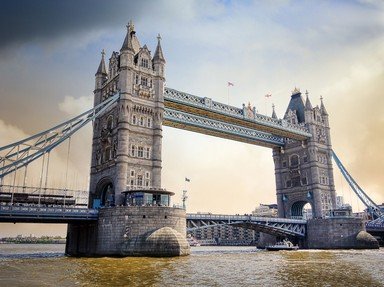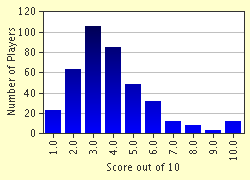Quiz Answer Key and Fun Facts
1. Which of the following names comes from the Old English word for "Heathen Temple"
2. The prefix War- used in such towns as Warwick, Warrington and Wareham comes from the Old English "wer". What does this word mean?
3. The West London area of Marylebone's name means?
4. Edinburgh's name means Edwin's fort. This name comes from Edwin, the 7th-century king of Northumbria, who built the first fort on the site of Edinburgh castle.
5. The Romans called it Mona; in the local language it was Mon. What is its more commonly known modern name?
6. The name of Ampthill in Bedfordshire comes from the Old English for "Ant hill"
7. Which of the following cities does not take its name from a river?
8. Cambridge means "bridge over the River Cam"
9. The suffixes -chester -caster and -cester common in many town names such as Manchester, Doncaster and Gloucester all mean the same thing.
10. Bury St Edmunds is so named because St Edmund was buried there.
Source: Author
Snowman
This quiz was reviewed by FunTrivia editor
minch before going online.
Any errors found in FunTrivia content are routinely corrected through our feedback system.

